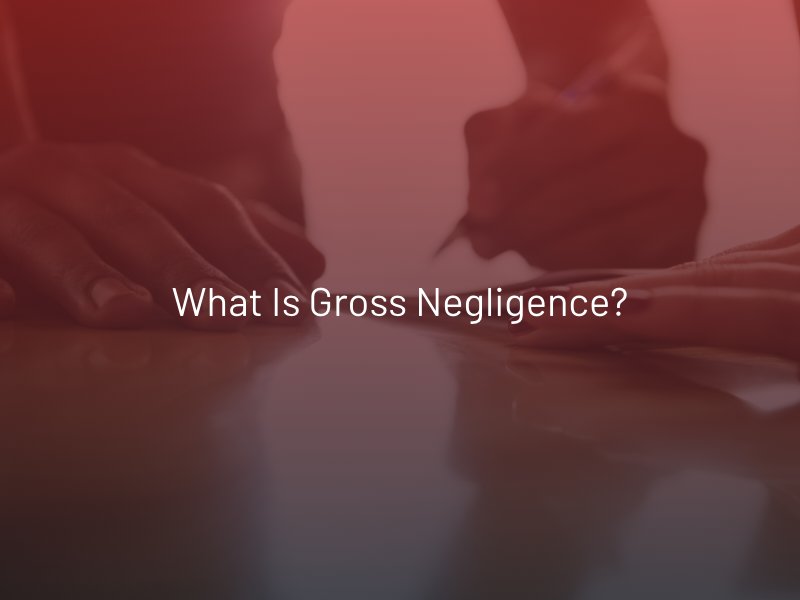What is Gross Negligence?
Gross negligence describes an action or omission that shows an extreme disregard for the health and safety of others. If gross negligence is a factor in your personal injury claim, you will likely be eligible for additional compensation known as punitive damages. The purpose of punitive damages is to punish the defendant (at-fault party) and discourage similar behavior by others in the future.

Understanding Gross Negligence
Individuals or entities who commit gross negligence do so with full knowledge that their actions or failure to act might cause foreseeable harm. That can mean serious property damage, injury, or even death. Those who are grossly negligent do more than not follow laws, instructions, or procedures. They willfully circumvent what is expected of them for many reasons, such as wanting to save time or money. Here are some examples of gross negligence:
- A doctor amputating the wrong limb on a patient.
- A surgeon leaving a foreign object inside a patient.
- A driver speeding through a school zone or area with heavy pedestrian traffic.
- Nursing home staff failing to provide a resident with food or water for days at a time.
- A business selling a product they know is dangerous.
Gross Negligence vs. Ordinary Negligence
Gross negligence differs from ordinary negligence in that it is a significantly more severe form and typically involves intentional conduct that is criminal in nature. In contrast, ordinary negligence is common in personal injury cases. It occurs any time an individual or entity fails to provide the reasonable care owed to another person.
Many situations impose a duty to exercise reasonable care. For example, drivers owe a duty to others on the road to drive safely and obey traffic laws to prevent an accident. A driver can breach that duty, for example, by failing to signal when changing lanes or texting while driving and causing an accident. These are acts of ordinary negligence, whereas driving while under the influence of alcohol or drugs can be considered an act of gross negligence. Gross negligence can also include a disregard for or delaying someone’s immediate care once they are hurt. For example, causing an accident and failing to call 911 even though a pedestrian was severely injured.
Proving Gross Negligence in Personal Injury Cases
There are four elements of negligence that must be established to successfully recover compensation in a personal injury case:
- The defendant owed the injured party a duty to take reasonable measures to protect them from harm.
- That duty was breached by actions taken by the defendant.
- The actions or inaction of the defendant caused harm to the plaintiff.
- The plaintiff suffered damages (economic or non-economic) due to the defendant’s negligence (e.g., medical bills, lost income, pain and suffering, etc.)
To prove the defendant’s actions went beyond ordinary negligence and were grossly negligent may require an experienced Las Vegas personal injury attorney. They can help gather and present clear and convincing evidence that the defendant ignored an obvious risk or caused injury with extreme conduct.